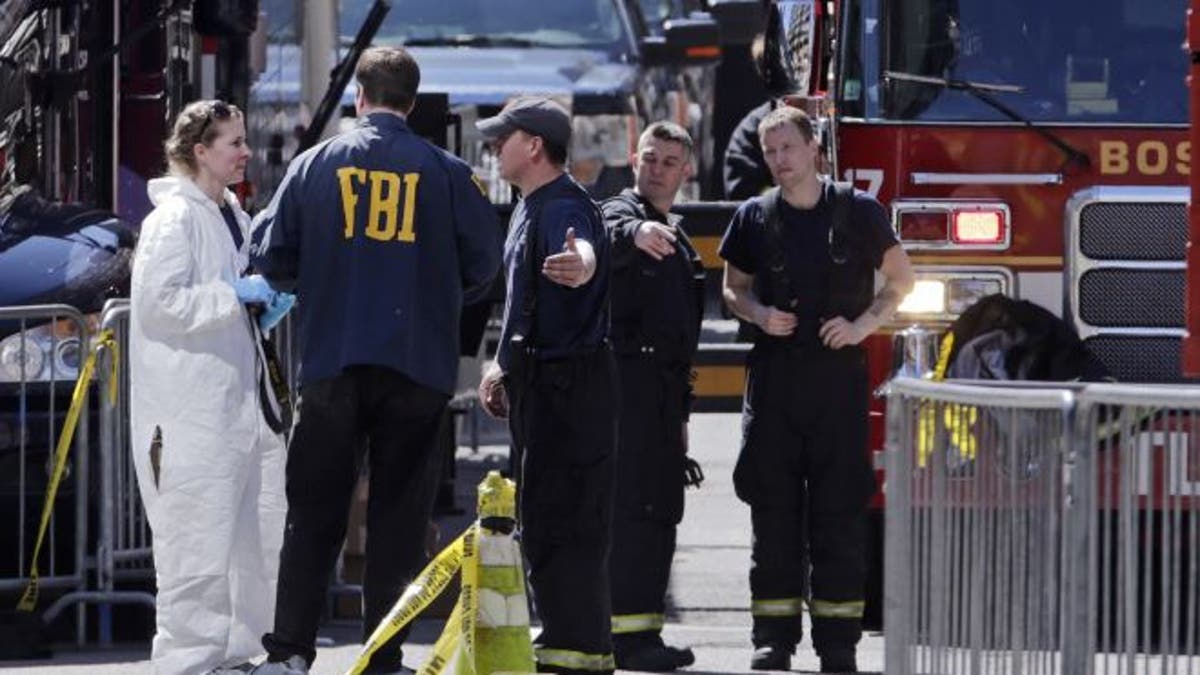
Physicians at Boston Medical Center said their experiences overseas helped prepare them for Monday’s bombing at the Boston Marathon, according to a news conference Thursday morning.
Joe Blansfield, a nurse practitioner and trauma program manager, said he was in Iraq for 12 months, and Monday’s eventswere “disturbingly similar,” when it came to treating the large number of trauma patients.
“The lessons learned in Iraq definitely paid dividends on Monday,” said Blansfield, who was a colonel in the Army Nurse Corps, U.S. Army Reserve.
One of the biggest lessons? Tourniquets can be a useful way to treat injuries, if used properly, Blansfield said.
“Tourniquets applied in the field or en route saves lives,” he said. “That was a direct benefit from Iraq and Afghanistan.”
Boston emergency medical services have been carrying tourniquets in their trucks for a few years now, because of lessons learned overseas – and Blansfield encourages other cities to stock up as well.
However, Blansfield and Dr. Joseph Burke, BMC's chief trauma surgeon, reiterated that if not applied properly, a tourniquet can cause more harm than good, and you should not apply one unless you have been properly trained.
Blansfield said they also learned to refrain from giving trauma patients “oceans of IVs,” because that interferes with the coagulation process. So, if the patient is losing blood, it’s better to give them red frozen blood cells and plasma, which they need more.
Lisa Allee, a licensed social worker and BMC’s injury prevention coordinator, said she and her staff have been debriefing physicians and emergency medical technicians on how to deal with such a traumatic event because it’s not just the patients who feel the emotional impact, but the ones treating the patients as well.
“They are already feeling the impact,” Allee said of the EMTs who initially responded to Monday’s scene. “ It’s similar to those of the families (of victims). They have the same feelings: shock, anger, grief.”
Burke noted if the treating physicians, nurses and EMTs aren’t talking about and dealing with their emotions, it will make it difficult to get up each morning and do their jobs – which is why it’s crucial to deal with stress in a timely manner.
“In order to take care of patients, we need to take care of ourselves,” Burke said.
Allee said she encourages these people to deal with stress by attending the debriefing sessions, using holistic methods, sharing their feelings and exercising.
Helping patients cope
Allee added that hospital social workers are crisis-oriented right now, focusing on helping patients deal with their injuries.
“As they (the patients) wake up, they are feeling anger, sadness; some are doing extraordinarily well,” Allee said. “And some are having flashbacks or intrusive thoughts – even during sleep. That’s normal.”
Burke said it’s important to realize the recovery process happens over a period of time, and people can go on to have a normal life.
“The cup should be half-full, not half-empty,” he said.
At least 16 patients remain at BMC, and only one is considered in critical condition at this point. Two patients will be operated on today.
Burke said many of these patients will require multiple surgeries, as there is due to massive tissue damage. – and this cannot be done all at once.
“You can’t just close a wound like that at first or else there would be an infection,” he said. “First, you go in and look at the wound (and treat it); the second time you make sure there’s no more debris and the third time you can close the wound.”
Then, he added, patients will require rehabilitation.
For amputees, it will be a while before they are ready for prosthetics.
Burke said seven amputations have been performed on five patients since Monday.
“One of the big fears is infection – not only in wounds, but in the lungs,” Burke said. “And clots in the veins, which can lead to pulmonary embolisms. And, of course, we worry a lot about mental health.”
On Wednesday, officials said an eight-year-old patient was in critical condition. That patient is no longer critical, Burke noted, and although he “always worries about the little ones,” the boy is making good progress.
“He’s strong,” Burke said, adding that he suffered from soft tissue and pulmonary injuries.
Allee said the boy was awake even when intubated, and he’s had family at his bedside the whole time. The boy’s mother was injured Monday, too, and is being treated at another health care facility, so Allee said technology like FaceTime and Skype is vital at a time like this.
